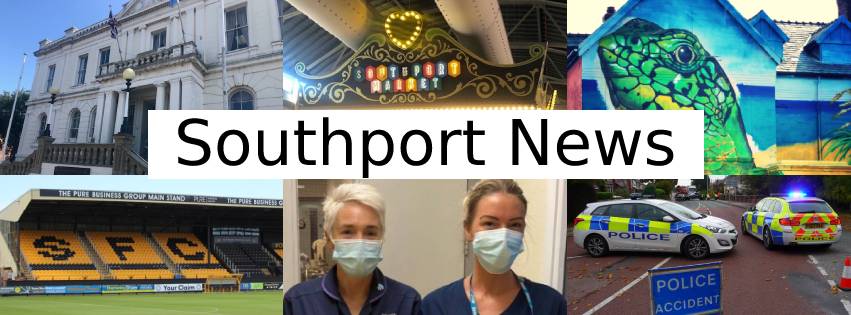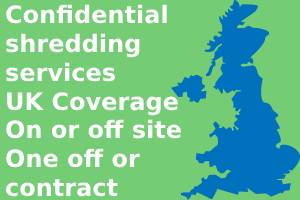Surge in young people receiving help from Childline for coping with anxiety
Counselling sessions for children and teenagers suffering from anxiety almost double in two years
Childline Annual Review ‘The Courage to Talk’ highlights how the NSPCC-supported service is playing an increasingly important role in the child mental health landscape
The pressures of modern-day life are leaving some children and teenagers feeling overwhelmed and leading to a sharp rise in the number seeking help for anxiety.
In 2017/18 Childline, which today launched its annual review ‘The Courage to Talk’, delivered 21,297 counselling sessions to young people trying to deal with feelings of anxiety – almost double that of two years ago.1
Over the last year, the Liverpool Childline base delivered 1,222 counselling sessions to children and young people from across the UK – almost double that of two years ago.5
At least 88 percent2 of the support provided by Childline for this issue was given to girls, reinforcing how they are struggling to cope with growing up in the UK.3
Children and teenagers cite a range of reasons why they may be feeling anxious including bullying and cyber-bullying, eating problems, relationship problems and issues at school with homework and exams.
Some also experienced anxiety alongside other mental health issues such as depression and obsessive compulsive disorder, while others reported having suffered abuse, neglect or bereavement.
‘The Courage to Talk’ details how in 2017/18 Childline delivered 106,037 counselling sessions to young people experiencing problems with their mental and emotional health and wellbeing.
This is a 5% increase on the previous year and more than a third of the total number of counselling sessions provided online and over the phone.
One girl aged 12-15 who contacted Childline said:
“I have anxiety and get really bad panic attacks. I've never known how I could tell anybody about what I'm feeling so nobody else knows. I've tried to explain it a little bit to my mum, but she thought I was just stressed out about exams and I felt like she didn't understand.
“Lately everything seems to make me nervous and worried and it's all getting really hard to cope with. I want help from somewhere but I don't know how to get it.”
The figures reveal the increasingly important role Childline is playing in the child mental health landscape, with less than a third of young people referred to CAMHS receiving treatment within 12 months.4
The Government recently announced a raft of proposals to tackle the problem with the focus being on school-based support for young people.
However these are being rolled-out gradually and will cover only a quarter of the country by 2022/23, meaning most children and teenagers will feel no impact from the reforms.
As a result free and confidential services like Childline will continue to be a lifeline to the thousands of young people who simply can’t access NHS or school-based mental health support.
Esther Rantzen, Childline Founder and President, said: “I am increasingly concerned at the huge rise in anxiety affecting our young people. It seems that the support they desperately need from family, friends, their schools or mental health professionals is either not there when they need it, or is failing them.
“Fortunately Childline is here to comfort and support them. But we must ask why for some young people is the world becoming such a difficult place? Unless we find effective answers to this question we know the anxieties they suffer from can get worse, leading to suicidal thoughts or chronic mental health problems as they get older.”
Peter Wanless, NSPCC CEO, added:
“Anxiety can be a crippling illness and it is deeply worrying that the number of counselling sessions we are delivering for this issue is rising so quickly. Increasingly Childline is filling the gap left by our public mental health services, providing young people with a place they can go for round the clock help and advice.”
ENDS
For further information please contact the NSPCC press office on 0203 772 9722 or email media@nspcc.org.uk
Notes to editors
There are NSPCC spokespeople and case studies available.
1 In 2015/16 there were 11,706 counselling sessions delivering by Childline for young people suffering from anxiety. In 2017/18 this number had risen to 21,297, almost double.
2 In 2017/18 there were 17,395 counselling sessions delivered to girls suffering from anxiety, 2,311 to boys and 1,591 where the gender was unknown. This means that 88% of counselling sessions where the gender was recorded were delivered to girls.
3 The Mental Health of Children and Young People in England in 2017 Survey (commissioned by NHS Digital) found that almost one in four (23.9%) young women aged 17-19 had a mental health disorder.
4 Source is the Children’s Commissioner of England – ‘of more than 338,000 children referred to CAMHS last year, less than a third (31%) received treatment within the year’.
5 In 2015/16 the Liverpool Childline base delivered 673 counselling sessions to children and young people across the UK. In 2017/18 this number had risen to 1,222.
About the NSPCC
The NSPCC is the leading children’s charity fighting to end child abuse in the UK and Channel Islands. Using voluntary donations, which make up more than 90 per cent of our funding, we help children who’ve been abused to rebuild their lives, we protect children at risk, and we find the best ways of preventing child abuse from ever happening. So when a child needs a helping hand, we’ll be there. When parents are finding it tough, we’ll help. When laws need to change, or governments need to do more, we won’t give up until things improve.
Our Childline service provides a safe, confidential place for children with no one else to turn to, whatever their worry, whenever they need help. Children can contact Childline 24 hours a day, 365 days a year on 0800 1111 or by visiting www.childline.org.uk
Our free helpline provides adults with a place they can get advice and support, share their concerns about a child or get general information about child protection. Adults can contact the helpline 24 hours a day, 365 days a year on 0808 800 5000, by texting 88858 or visiting www.nspcc.org.uk
|
|
||||||
|
WANTED: YOUR NEWS AND STORIES FOR SOUTHPORT
Email local news to us including image(s) southport@qlocal.co.uk Follow / Report to us on Twitter @SouthportQlocal Follow / Comment with us on Facebook qlocalsouthport
WANTED: YOUR NEWS AND STORIES FOR SOUTHPORT
Email local news to us including image(s) southport@qlocal.co.uk Follow / Report to us on Twitter @SouthportQlocal Follow / Comment with us on Facebook qlocalsouthport Check Todays Deals on Ebay.co.uk Your Comments:

Custom Search

|
You are in:
UK /
Southport / North West
Find any Town in the UK, or Use UK map Local Google MAP for Southport Check Todays Deals On Amazon.co.uk Check Todays Deals on Ebay.co.uk 
 Also website at southportnews.co.uk
Also website at southportnews.co.uk

Qlocal Supports Woodlands Animal Sanctuary 

 Be Seen - Advertise on Qlocal Corporate Sponsors
Southport Piano and Music Academy Washroom Services Maximum Grounds Maintenance Southport Garden Services Ormskirk Garden Services Sanitary Bins Nappy Bins & Waste Disposal Confidential Shredding Services Legionella Risk Testing London Washroom Services Croydon Washroom Services Hounslow Washroom Services Wandsworth Washroom Services Havering Washroom Services Sanitary Bins London Clinical Waste London General Waste London Legionella Testing London Shredding London Tatoo Waste London Preston Bird Control Blackpool Bird Control
UK, Local Online News Community, Forums, Chats, For Sale, Classified, Offers, Vouchers, Events, Motors Sale, Property For Sale Rent, Jobs, Hotels, Taxi, Restaurants, Pubs, Clubs, Pictures, Sports, Charities, Lost Found
southport,
southport News,
|
|||||
|
|
|
|





 Reply With Quote
Reply With Quote


